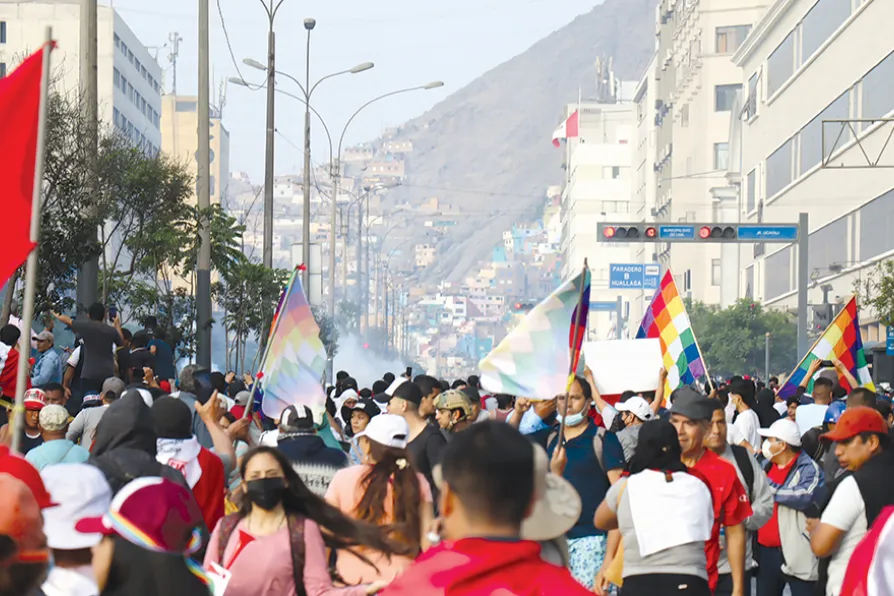RUBEN BRETT of Liberation explains why the narratives we hear about the poverty-stricken Caribbean nation are deeply misleading
Boluarte implicated in mass repression
Amnesty International alleges that senior Peruvian officials either planned or deliberately failed to stop the violent crackdown on anti-coup protests which killed more than 50 people and injured thousands, writes PABLO MERIGUET

 MURDEROUS STATE: Demostrators in the centre of Peru’s capital Lima on December 12 2022, text on the flag (left) reads: ‘Let’s close Congress, that nest of rats, Peru disowns you!’
[Mayimbu/CC]
MURDEROUS STATE: Demostrators in the centre of Peru’s capital Lima on December 12 2022, text on the flag (left) reads: ‘Let’s close Congress, that nest of rats, Peru disowns you!’
[Mayimbu/CC]
LAST week, Amnesty International published an 86-page document regarding the series of human rights violations committed by the Peruvian state during the protests that took place between December 2022 and March 2023.
During this period, when tens of thousands took to the streets in rage against the coup carried out against president Pedro Castillo, more than 50 people died and thousands were injured.
The report alleges that Dina Boluarte, the de facto president of Peru following the coup, as well as other senior state officials, either planned the police and military operations that violated the human rights of thousands of people protesting the coup or deliberately failed to stop the publicly known crimes.
Similar stories














